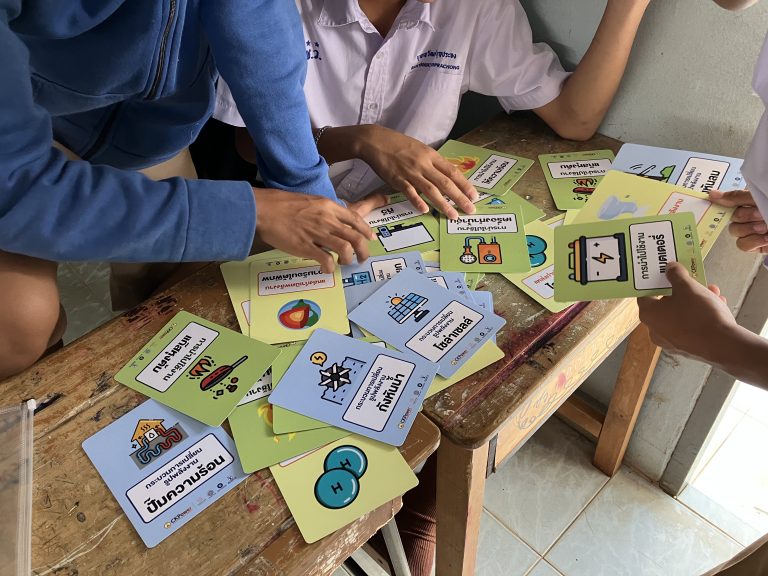Better Environment, Better Equity
“I will still live on this planet, so I would love to have a good or better environment in the future,” remarked 'Top' -- Sitthisak Wantong, a 9th-grade student from Pak Thong Chai Chunhawan Wittayakan School in Nakon Ratchasima, reminding us to reconsider our activities that might impact the environment. Top's school has recently adopted solar energy, which has also become an important tool for learning about natural resource conservation for the students.

The Solar Cell project was supported by CK Power Public Company Limited, a company that focuses on the environment and clean energy.
“We proposed this project to CK Power during our summer internship last year. We didn’t think it would be possible, but it is now done,” recalled Chanitphak Phoomsoong, Teach For Thailand cohort 9 Fellow, explaining how the project came to be.
“We thought it would be impossible because of the cost, but once approved, our students now have access to real clean energy, not just models in the books anymore. We can build many learning activities from here.”
“School could cut some of its expenses: the electricity from the solar cell is used with the water pump that waters the football court, which helps because the court uses real grass which needs water, but it doesn’t rain much in this area,” explained Wanyiwa Raknun, another TFT Fellow, regarding the benefits of the project.
As TFT Fellows, both of them believe that climate education can help progress Thailand forward.
“If we improve individuals, they can create more impact in the future. For example, our students might one day come up with an innovation that saves the environment,” said Wanyiwa.
“In the science class, we teach about atmospheres and climate change,” recalls Chanitphak. “Raising awareness alone might be difficult, so I go for things directly related to my students, so they can connect and see how we impact the environments and vice versa, and how both can co-exist.”
“Climate Change has been a trend for a while, the most important thing is how can we raise awareness and understanding for our students, so they could compromise their lifestyle for environment’s sake, and sustain our local resources,” she added.
Not only do the two Fellows anticipate potential benefits for the country, but they also agree that teaching climate education can reduce inequality.
“If we teach economics, we can link inequality to environmental problems. For example, despite people of all levels being affected by climate change, there are only a few who are more free to release greenhouse gases,” explained Wanyiwa. “We tell our students that no matter who you are, or what status you have, we can all be part of the solution, big or small, to improve our environment.”
For Chanitphak, climate education increases opportunities for equitable access to resources. “Having fewer environmental problems means more chance to access resources: it means more income and employment.”
In conclusion, the two Fellows have emphasized how education personnel can help raise awareness about environmental issues.
“If we do this alone, it will not have as much impact. But if we can build a network, the impact could be large and sustainable,” commented Wanyiwa
Chanitphak remarks:
“As someone working closely with youths, having a suitable environment, as well as a consistent and proper [environmental] education can help students gradually become familiar with them. Their accumulated knowledge can help prevent and cope with environmental threats in the long run, so that it is not too late.”
Earth Day is celebrated on April 22nd every year to raise awareness for all citizens about the importance of conservation and improvement of environmental resources. Teach For Thailand invites readers to help drive solutions to effect change, so Thailand may sustainably move forward.

